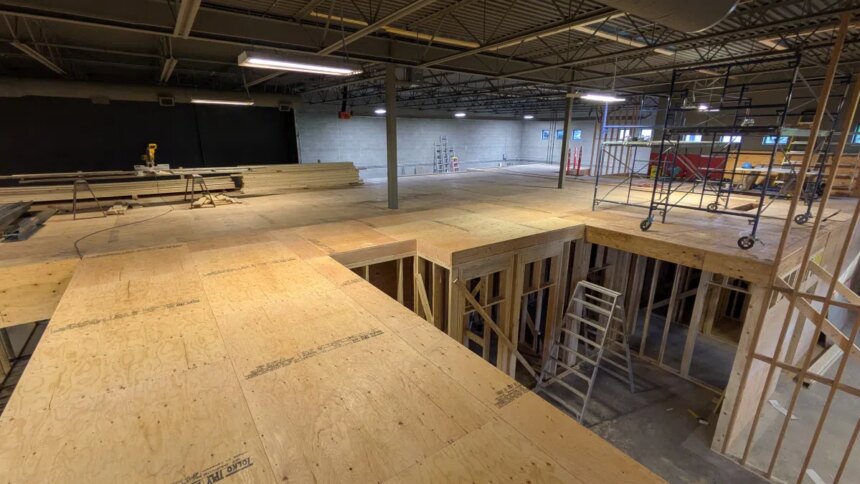Standing in the new warehouse on 35th Avenue, I’m struck by how much more breathing room exists compared to the cramped quarters the Vernon Food Bank operated from for nearly two decades. The scent of fresh paint still lingers as volunteers shuttle boxes of donations across a floor space nearly triple the size of their previous location.
“We’re seeing faces we’ve never seen before,” explains June Richardson, the Food Bank’s operations manager, gesturing toward a growing list of client names on her clipboard. “Young families, seniors on fixed incomes, even people with full-time jobs who just can’t make ends meet with today’s housing costs.”
The relocation project, completed last month after nearly two years of fundraising and community support, couldn’t have come at a more critical time. According to Statistics Canada data released in April, food insecurity in the Okanagan region has increased by 27% since 2021, outpacing the provincial average of 19%.
Richardson guides me through their expanded refrigeration area, where fresh produce donations from local farms can now be properly stored. “Before, we’d sometimes have to turn away perfectly good donations because we simply didn’t have the storage capacity,” she says, adjusting her glasses. “Now we can accept more perishables and keep them fresh longer.”
The Vernon Food Bank’s client base has grown from serving approximately 1,200 individuals monthly in 2019 to over 1,800 today. What’s particularly concerning to staff is the shifting demographic—working families now make up nearly 40% of their clients, compared to 25% pre-pandemic.
City councillor Patrick Vance, who championed the relocation initiative at municipal meetings, points to the ripple effects of the housing crisis. “When families are spending 60 or 70 percent of their income on housing, something has to give. Unfortunately, that something is often food quality or quantity,” Vance told me during a phone conversation yesterday.
The expansion has allowed for more than just increased storage. The building now includes a dedicated intake area where clients can discuss their needs privately, ending the practice of sensitive conversations happening within earshot of others waiting in line.
“Dignity matters,” emphasizes volunteer coordinator Sarah Chung, who’s been with the organization for nine years. “Many of our clients are coming here for the first time in their lives. They’re already feeling vulnerable—the least we can do is offer them privacy and respect.”
The Food Bank’s new space has also enabled the launch of their “Community Kitchen” program, where small groups can learn food preparation and preservation techniques to stretch limited budgets. The first workshop, focused on batch cooking and freezing family meals, filled up within hours of being announced.
BC Hunger Initiative, a provincial non-profit tracking food security issues, released a report in March highlighting Vernon as one of several mid-sized communities seeing accelerated need. “Smaller cities like Vernon are experiencing the economic pressures of larger centers but without the same density of support services,” explains the report author, Dr. Hannah Mitchell.
What makes Vernon’s situation particularly challenging is the seasonal employment patterns tied to tourism and agriculture. Local employer Ken Shimizu, who runs an orchard operation employing 30-40 seasonal workers, has noticed more of his staff struggling between seasons.
“I’ve had reliable workers with me for years who’ve never mentioned food insecurity before, now asking if there’s any extra work they can pick up in the off-season,” Shimizu says. “These are hardworking people who just can’t stretch their dollars like they used to.”
The Food Bank’s expanded capacity arrives as provincial food assistance programs face uncertain funding futures. The BC Food Security Fund, which provided emergency support during the height of the pandemic, has been reduced by 35% in this year’s provincial budget.
Vernon’s business community has stepped up to help fill the gap. A coalition of local businesses, spearheaded by Valley First Credit Union and Okanagan Spirits Craft Distillery, contributed nearly $175,000 toward the relocation costs. Their support covered everything from building renovations to purchasing new refrigeration equipment.
“We see this as an investment in community resilience,” explains Tyler Dyck, CEO of Okanagan Spirits, who helped organize the business fundraising initiative. “When our neighbors are food secure, our entire community benefits.”
The expanded footprint has also allowed the Food Bank to address another long-standing challenge: transportation. With a designated loading dock and improved parking area, they’ve launched a mobile food delivery service for homebound seniors and people with disabilities.
“We knew transportation was a barrier for many,” Richardson explains, showing me their newly acquired refrigerated van, donated by a local auto dealership. “Some clients were spending what little money they had on bus fare just to access our services.”
As we wrap up my tour, a young mother arrives with two children in tow. Richardson greets them by name, ushering them into the new client area where kid-friendly snacks and a small play area now exist. The woman’s relief is visible as her children settle in with books while she completes her intake process.
This scene captures the essence of what the expanded facility enables—not just more food distribution, but more dignity in the process. It’s a reminder that food banks were never intended to be permanent solutions to hunger, yet they’ve become essential community infrastructure.
Looking ahead, Richardson acknowledges the uncomfortable reality that their expanded capacity will likely be tested. “We built this with growth in mind, but honestly, success would be needing less space, not more,” she reflects. “Until then, we’ll make the most of every square foot.”
The Vernon Food Bank welcomes donations Tuesday through Saturday, with their new location offering extended hours on Thursday evenings to accommodate working families. Volunteers are always needed, particularly those with food handling experience or foreign language skills to assist the growing number of newcomers accessing services.






